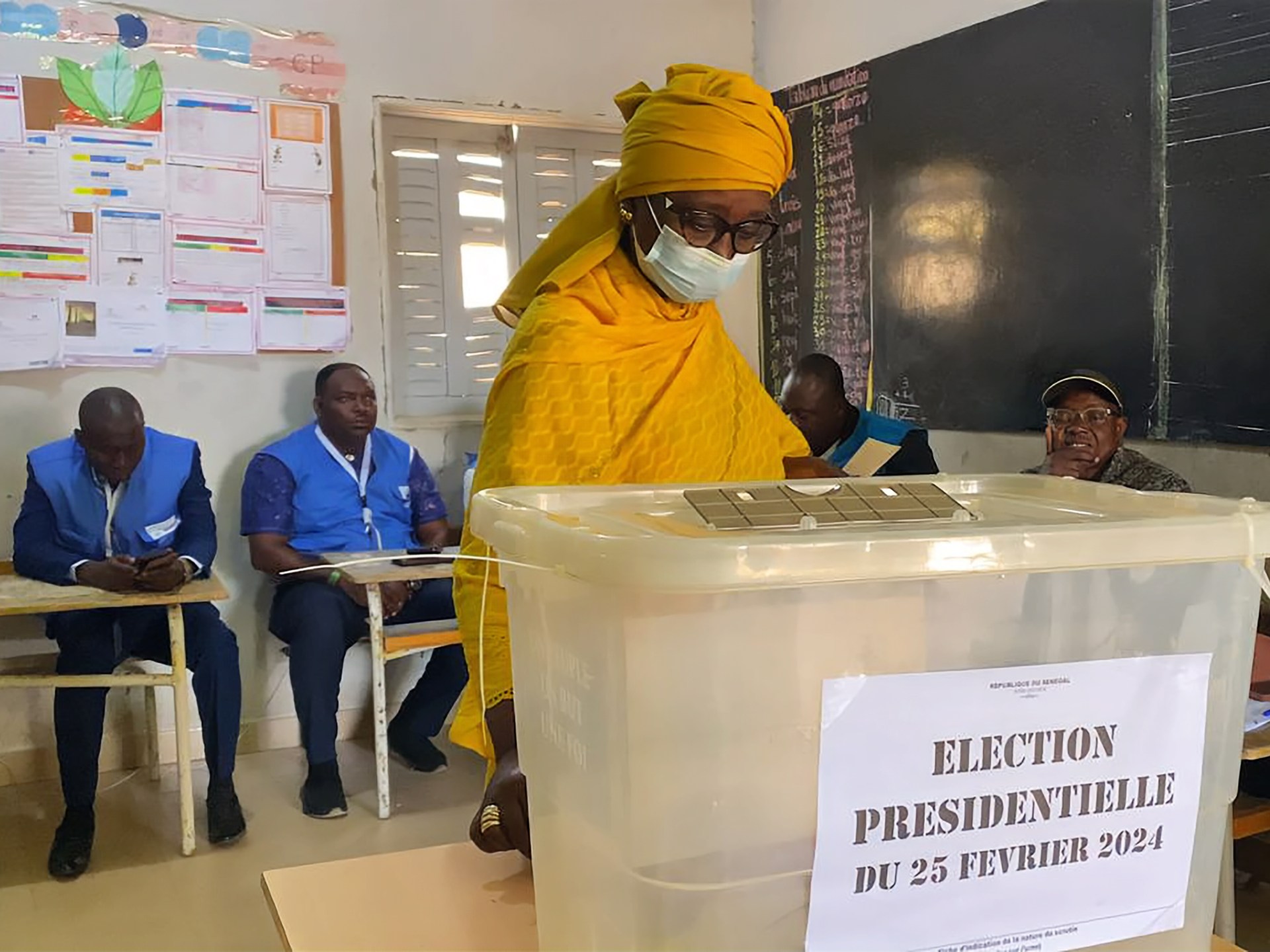From inside one of the polling stations in Senegal (Al Jazeera)
Polling stations closed their doors in Senegal, after voters cast their votes to choose the fifth president in the country's history.
It was a quiet day on the security level, and active movement witnessed in the streets of the capital, Dakar, which began just before the polling stations opened their doors to receive approximately 7.3 million registered voters.
The polling stations witnessed a wide turnout, with a remarkable presence of young voters, and voters lined up since the early hours of the morning, waiting to cast their votes.
There were no unusual security appearances in Dakar, and the police units stationed in front of the polling points were content to check voters’ identities, while the gendarmerie units took over this task outside the capital and the rest of the country.
Sal praises the conduct of the elections
President Macky Sall praised - in a brief speech - after casting his vote "the electoral system and the conduct of the electoral process." While the Minister of the Interior reaffirmed the necessity of "adhering to calm and tranquility, and staying away from violence."
The elections were held in the presence of observers from the African Union, ECOWAS, and the European Union.
Senegalese in front of a polling station (Al Jazeera)
Candidates between the government and the opposition
These are the ninth elections since independence, in which Sall avoided displacement by ballot, making it the first in which the president holding the reins of government did not run.
It is the first time in the history of this country that a woman has reached the actual ballot, and it may be the first time that an opposition movement from outside the traditional political scene participates.
The ruling coalition nominated its candidate, Mamadou Ba, who is the former head of government and a man close to President Sall.
Ba is seen as an extension of the policies of the Sal governments. When casting his vote, the presidential candidate hoped that "the Senegalese people will get to know their next president soon, and that they will resume their daily lives quietly."
But Ba's closeness to the current president may not favor him in the funds. Sall's second term was characterized by economic difficulties, and also witnessed political and security tensions.
These factors could tip the balance in favor of the opposition, especially the banned Pastif party, after Basiro Diomai Faye was nominated for the position of president.
Faye, who has the support of opposition leader Ousman Sonko, seemed confident of achieving a landslide victory in the first round. After casting his vote, he called on the candidates to "respect what the ballot boxes produce."
From the facts of voting in the Senegalese elections (Al Jazeera)
First round or repeat
It is very difficult to extrapolate what the results of the funds will be. However, according to the electoral law, any candidate must obtain an absolute majority to be considered the winner of the first round.
If none of the candidates exceeds the required threshold, a runoff will be held between the two candidates who obtained the highest percentage.
In the absence of indicators of voting trends, we can talk about two likely scenarios.
First: Going to a run-off between Ba and Fai. In this case, the political situation that Senegal is going through, and the votes of young people, can constitute a helpful factor for the opposition candidate who has no previous political experience.
The second: This is evidenced by a historical view of elections since independence, where the voter tends to choose the opposition candidate returning from the ranks of the government.
In this case, it is possible to talk about the transfer of Idrissa Sack or Khalifa Sall to the run-off, both of whom come from ministerial positions during the terms of the current president.
Calm has characterized the electoral process in Senegal (Al Jazeera)
Decisive elections
These elections have remarkable implications, as Senegal is located in the middle of a politically turbulent region, and was almost swept into a series of unrest fueled by Sall’s attempts to postpone the elections until the end of the year.
At that time, Senegal witnessed widespread protest movements, which ended with the Constitutional Council rejecting the president’s decision and setting a date for the vote.
Internationally, Senegal, along with Chad, is the last remnant of France’s direct influence in West Africa. Paris maintains a limited military presence of about 500 soldiers in Senegal.
However, before the elections, the French Ministry of Defense announced its intention to reduce the number of its soldiers to about 260 members by next June, “the majority of whom will be advisors and trainers.”
Source: Al Jazeera

